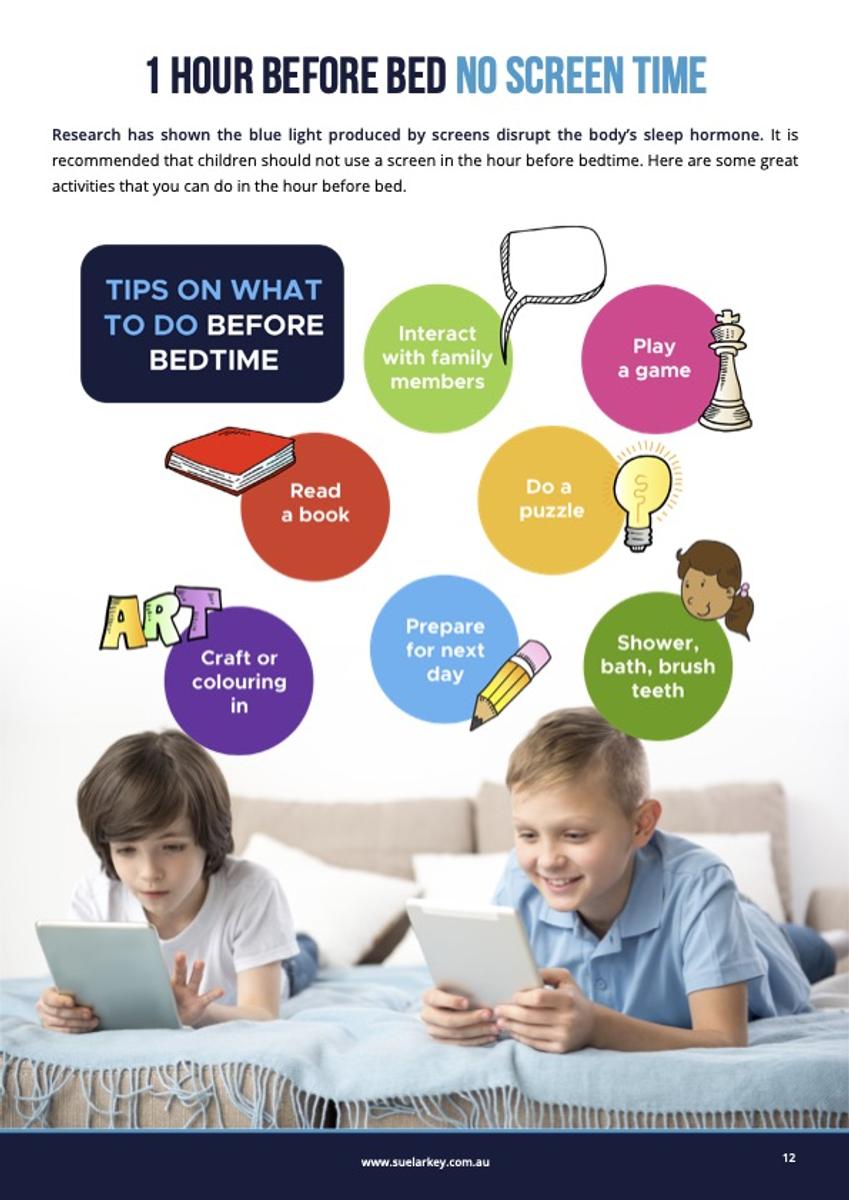Wellbeing

Social Media Alert
It has come to our attention that some students are watching inappropriate content on You Tube, TicTok and other social media platforms and discussing the content or words heard at school. Creators of these platforms are very clever when creating their content using cartoon characters and images that appeal to children but with an adult message and content. We strongly encourage all parents to be vigilant and monitor their child's social media use.
Sleep Time versus Technology Time
Why sleep is important for children aged 5-11 years
When your child sleeps well, your child will be settled, happy and ready for school the next day. That’s because good-quality sleep helps your child concentrate, remember things, manage emotions and behave well. This all helps your child learn well.
Getting enough sleep is also important for your child’s health. That’s because it strengthens your child’s immune system and reduces the risk of infection and illness. At 5-11 years, children need 9-11 hours sleep a night. For example, if your child wakes for school at 7 am and needs approximately 10 hours sleep per night, your child should be in bed before 9 pm.
Your child needs enough good-quality sleep so they can play, learn and concentrate during the day.
Screen time and digital technology use can affect how quickly your child falls asleep and how long your child sleeps. This happens for several reasons:
- Screen time in the hour before bed can stimulate your child.
- Light from televisions, computer screens, phones and tablets might suppress melatonin levels and delay sleepiness.
- Your child might be tempted to stay up late to chat with friends or play games.
- Your child might be disturbed in the night by notifications, messages or calls.
Reducing the effects of screen time and digital technology use on sleep
Here are ways you can reduce the negative effects of screen time on your child’s sleep:
- Suggest quiet activities for your child to do in the hour before bedtime. This could be reading, listening to music or a podcast, doing a mindfulness activity and so on.
- If your child wants to use a device in the evening, encourage them to choose relaxing content and put the device away well before bedtime.
- Limit and monitor violent or stressful content at any time of day. This can affect sleep regardless of the time and length of use.
- Encourage your child to connect with friends during the day rather than late in the evening.
- Encourage your child to do outdoor physical activity or play during the day.
Have a family rule that mobile phones and other devices are left in a family room overnight.
Source: Raising Children Network: https://raisingchildren.net.au/
Positive Behaviours for Learning
As part of our ongoing development as a PBL school we continue to explicitly teach & model expectations from our matrix. Our data has shown that we need to reteach the following expectations.
The foci for the next few weeks are:
Respect:
We are aware of the personal space of others
We are patient
Responsibility
We keep our hands, feet & objects to ourselves
We follow the rules in games
We move in a safe way
Resilience:
We include others
We talk through our disagreements with others
We let an adult know if we are feeling unsafe
These expectations will be explicitly taught during Wellbeing Hour & revisited throughout the week. It would be great if you could also reinforce these expectations at home and ask your child/children how they are following these at school. What do these expectations look like, sound like, feel like?
If you have any concerns please contact Sandy - shenderson@olscwyn.catholic.edu.au or Kiah - kmiles@olscwyn.catholic.edu.au - Alternatively you can phone the school office.
Cheers
Sandy & Kiah


